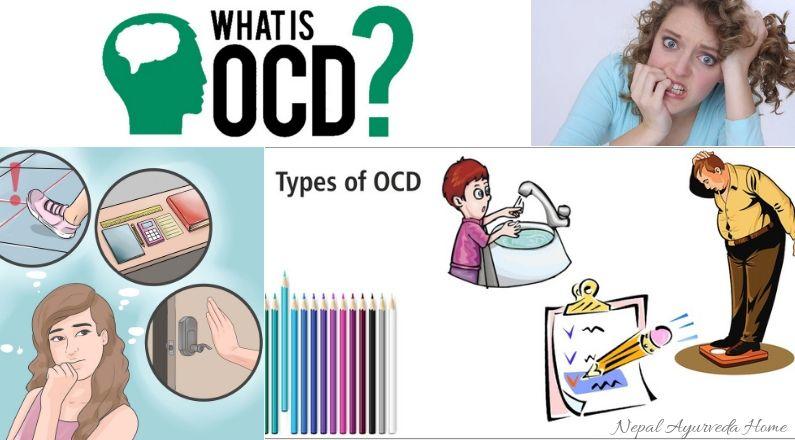Meaning Of Obsessive Compulsive Disorder
The National Institute of Mental Health defines OCD as “Obsessive-Compulsive Disorder (OCD) is a common, chronic and long-lasting disorder in which a person has uncontrollable, reoccurring thoughts (obsessions) and behaviours (compulsions) that he or she feels the urge to repeat over and over.” In this disorder, people have a persistent intrusion of unwanted thoughts, urges or action that the patient is unable to stop.
Though the precise cause and pathogenesis of OCD is not completely understood, it is accepted that it results from chemical changes in areas of brain and genetics. However, one suffering with OCD may have Obsessions or Compulsions or both.
Obsessions
An obsession is an idea or thought that is repeated, persisting and uncontrolled despite the efforts of the bearer to ignore and confront them. Such obsessions lead to stress and anxiety.
Some Commons Obsessions Are:
- Fear of germs, dirt, body fluids and other contaminants
- Excessive want of perfection and doubts of making mistakes
- Fear of harming others as well as self
- Fear that something terrible is happening in the near future
- Obsessions with sexual thoughts, impulses leading to aggressive sexual behaviour
- Superstitious ideas about un/lucky number, colour, perfect order
Compulsions
To compensate and neutralize the anxiety generated by obsessive thoughts, people do repetitive actions which according to them is a solution to get out of the situation.
Some common compulsions are listed below
- Repeated washing of hands, bathing or cleaning for a long time
- Checking if the door is a lock, or the light switches are off multiple times.
- Arranging things in a particular order they think is precise until it feels right to them
- Repeating certain activities in a multiple of a number they think is lucky, right or safe.
- Excessive nail-biting, hair pulling, skin picking.
OCD and Ayurveda
In Ayurveda, OCD is correlated with one of the Mental disorders as described by Acharya Charaka, Atatwabhiniwesh. ‘Tatwa’ is truth or something that exists while ‘Atatwa’ is just the opposite, the false and non-existing or imaginary thing. This condition indicates towards obsession on non-existing things. The signs and symptoms of Atatwabhiniwesh as described in classical Ayurveda texts also somehow indicate towards delusions. Ayurveda describes the cause to be the vitiation of doshas Vata, Pitta, Kapha as well as the mental doshas Raja and Tama, these vitiated doshas mask the mana and its subtle channels bringing about the signs and symptoms. It is also said that the continued use of stale food and suppression of the unsupressible urges also contributes to OCD.
Managing OCD
- Sodhana line of treatment, the Panchakarma carried out in the patient helps remove the vitiation of doshas and bring them in a balance eliminating the cause and energizing the patient.
- Shamana line of treatment, the pacification of the doshas and symptoms are more effective after the Panchakarma. Here, polyherbal medications, diet and regimen are designed in such a way that they enhance the thinking ability and mental strength.
- Herbs like Liquorice, Sankhapuspi, Tinospora, Mandukaparni, Brahmi, Asparagus, Garlic and their formulations, Panchagavya ghrita are generally recommended.
- Sattvic food like freshly prepared food, grains and vegetables, fruits like coconut, peaches, mango and milk products helps increase the Sattva mental property and helps achieve victory over confusion, lack of direction and indecisiveness. The Tamasic food like meat, onion and mushrooms, heavy and stale food shall better be avoided.
- Remedies like a paste of Garlic with sesame oil, Asparagus powder with milk, honey with the fresh juice of Brahmi can be used.
- Psychological counselling, behaviour therapy along with teachings of religious and moral values by expert counsellors can help the patient in thought stopping and response prevention. It also helps the patient to involve in creative activities and be more aware and alert with their knowledge so that their obsessions and compulsions gradually step down. The psychotherapy thus focuses on increasing the patience, memory and concentration of the patient.
- Yoga practices like Sun Salutation, deep breathing exercises and especially the techniques of Kundalini yoga can have splendid effects on OCD cases.
